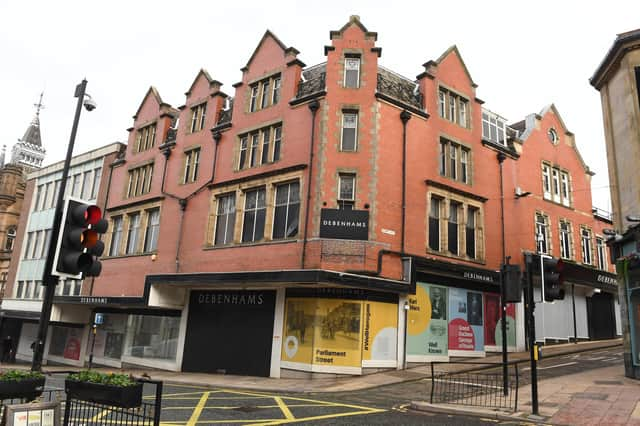Harrogate business leaders to offer support to town's traders hit by rising tide of challenges


As concern grows among traders at the threat of being squeezed between ever-rising costs and an increasingly negative outlook for consumer spending, the business group said it would be taking positive steps to ease the burden on local traders while driving footfall to the town centre.
Advertisement
Hide AdAdvertisement
Hide AdMatthew Chapman, manager of Harrogate BID, said: “We’re looking to launch a cost savings initiative for our BID members that will include energy, compliance and running costs. At the moment, we are just looking for a number of businesses to help us shape this offering, which we believe has the potential for savings.
“Our message is, the more firms sign up to it the greater the savings will be.”
With household bills, energy prices, inflation and import costs all soaring across the board and a recruitment crisis adding to the pressures, even the most successful traders in Harrogate are worried about their prospects in the year ahead - despite the ending of lockdown restrictions and the reduced threat from the pandemic.
Harrogate BID, which was formed in 2019 after a successful ballot of local businesses, says it will also be using part of the levy money raised from local traders to ensure empty units are filled as quickly as possible in the town centre.
Advertisement
Hide AdAdvertisement
Hide AdMr Chapman said: “We are currently working with a commercial estate and letting agent to help us identify how we can attract new, high quality businesses to Harrogate town centre.
“We want to help boost the town’s unique offering, reduce the number of current vacant units, and increase footfall with the aim of ensuring the whole town benefits from our actions.”
How Chancellor of the Exchequer Rishi Sunak attempted to soften the blow
Last week the Chancellor of the Exchequer waded into the cost of living crisis by announcing new measures to ameliorate the end of the energy price cap.
Advertisement
Hide AdAdvertisement
Hide AdTo help families cope when average energy bills soar by around £700 to nearly £2,000 in two months’ time, Rishi Sunak said 80% of all homes in England would get a £150 rebate on their council tax bills this April.
In addition domestic electricity customers are to receive £200 in October off their energy bills in the form of loans to be repaid over a five-year period.
Under the third part of Mr Sunak’s plan, local authorities will be given “a discretionary fund of nearly £150 million” to help lower-income households.
But the measures were criticised for being completely by charities, opposition politicians and even groups representing the business world.
Advertisement
Hide AdAdvertisement
Hide AdThe British Chambers of Commerce has warned the Treasury of an impending ‘cost of doing business crisis’.
Its latest survey of more than 1,000 businesses, showed that firms across the country are under intense pressure from a variety of costs. It found that prices were likely to rise as a result, further fuelling the cost-of-living crisis for households.
BCC director general Shevaun Haviland said: “Without additional help from the Treasury to weather this storm many businesses, especially smaller ones, will be faced with a nearly impossible situation that will leave them with little choice but to raise prices."
Katie Schmuecker, deputy director of policy and partnerships at the Joseph Rowntree Foundation said: "The chancellor has offered cold comfort to families in poverty, who are already rationing what they can spend on essentials such as heating and food.
Advertisement
Hide AdAdvertisement
Hide Ad"These families are now expected to find at least half of the eye-watering increases in energy bills, when many are already getting into debt to keep their houses warm and food on the table.
"Three-quarters of those who can claim the enhanced support are not in poverty.
"Meanwhile, inflation is set to rise at more than double the rate of benefits.
"This support will not get people through the next few months and it will not protect those most at risk of hardship."
Advertisement
Hide AdAdvertisement
Hide AdThe Labour Party argued that real action not words was needed to fix cost of living crisis and pointed out it had been calling for weeks for the Government to cut VAT on energy and fuel.
Jim McMahon, Shadow Secretary of State for Environment, Food and Rural Affairs, told the House of Commons that the Government was making the cost of living crisis "worse through tax hikes, low growth, falling real wages, and a failure to tackle the energy crisis."
He also condemned what he said had been a "decade of Conservative-led governments for leaving Britain uniquely exposed to a global gas crisis and failing to create high paid, secure jobs."